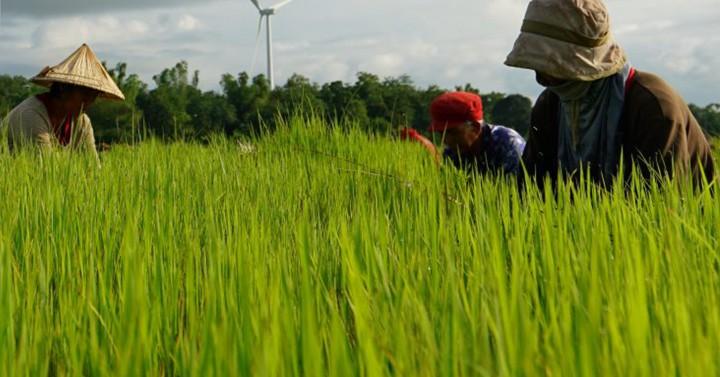To boost the agriculture sector, experts believe small-scale farmers should adopt affordable technology-driven agriculture initiatives while the government speeds up investment in smart agricultural transformation (SAT). According to Philippine Institute for Development Studies (PIDS) Research Fellow Roehlano Briones, smart agriculture covers a wide range of technologies, some of which could be handled by small farmers. Setting up a sensor that will communicate with farmers’ mobile phones is a start, he said during a recent Asian Productivity Organisation (APO) event.
The APO is an intergovernmental organisation established to increase productivity in the Asia-Pacific region through cooperation. As per a news release, Briones particularly cited the case where the International Rice Research Institute (IRRI) and the Department of Agriculture (DA) collaborated to develop the Rice Crop Manager (RCM), a technology that provides real-time scientific advice to farmers. Briones also suggested that some farmers collaborate on a smarter management system offered by a service provider that makes use of drones and other automated scientific systems for pest control. Instead of one farmer availing of the service, it could be a group of farmers in a contiguous area. They would agree to share and subscribe to the service. They would collect the payment and the service provider would help the group by organising a cooperative, he explained.

“There are solutions like these, or aspects of smart agricultural technologies and I am optimistic that we will see more and more of these in the years to come,” he added. These technologies may not require large-scale investment. It could be as simple as an upgraded mobile phone that can run an app for sensor-based analysis. This could be done at the level of individual farmers. However, he claimed that they “need to be convinced”.To accelerate SAT in APO member countries, governments must continue investing not just in sophisticated technologies but also in basic agricultural tools. These include conventional rural infrastructure and research and development.
The better the logistics, the more sense it makes for farmers to adopt e-commerce. Equally important is research and development in, for example, an extension system to be able to deliver new products and services to farmers. Briones underscored the importance of investments in human resources in the rural workforce, and in digital literacy and openness to new techniques. “That is ultimately the key towards smart agricultural transformation,” he stated.
Last month, 11 units of smart greenhouses were set up in the Jaro District, which will provide an all-year-round supply of high-value crops to ease the fear of food shortage amid the pandemic. The smart greenhouses are expected to be completed at the Department of Agriculture -Western Visayas Integrated Agricultural Research Centre (DA-WESVIARC) during the first quarter of 2022. The information technology-based or smart greenhouses are funded by the Korean government through the Korean International Cooperation Agency (KOICA). The project costs PHP5.5 million (US$107,296) with each unit priced at PHP500,000 (US$9,754). An official stated that the technology is not the same as hydroponics. It is more high-tech. The facility needs no manual operation as it is computerised. The computer determines the temperature and nutritional needs of the plants grown in it.









